Scott Morrison pulled both ways on borders
Newspoll shows 73 per cent of voters believe the international borders should remain closed as business leaders and MPs push to reopen the country.
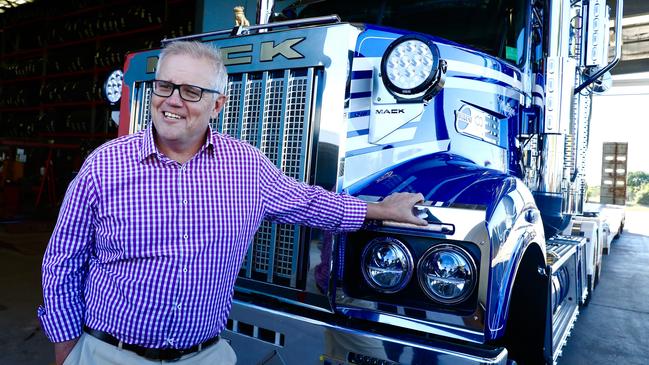
An overwhelming majority of voters back a Fortress Australia international border policy and want them to remain closed until the global pandemic is under control, as Scott Morrison faces calls from business leaders and a ginger group of his own inner-city Liberal MPs to reopen the country as soon as possible.
An exclusive Newspoll conducted for The Australian shows 73 per cent of voters support the Morrison government’s approach and believe the international borders should remain closed until at least the middle of next year.
The government is facing growing calls from some quarters to shift the national discussion to how Australians can safely live with the coronavirus once the international borders are opened or risk the country falling behind the rest of the world.
In a speech to Department of Foreign Affairs and Trade officials on Thursday, Australian Industry Group chief executive Innes Willox said Australia risked winning the health battle but losing “the economic war” if the borders remained sealed for another year.
He warned the nation had walled itself off from the rest of the world and erected the “biggest trade barriers we have ever faced”.
In a sign of the strong divisions emerging between business leaders, Coalition MPs who back borders opening sooner and the community, only one in five voters believed that borders should be reopened as soon as all those who wanted to were vaccinated.
The special Newspoll of 1506 voters following last Tuesday’s federal budget — which included the assumption that borders would remain effectively closed for another 12 months — showed community sentiment was with the government’s refusal to accelerate the reopening.
Mr Morrison last night told The Australian that the government would remain firm on its policy of protecting the health of Australians and not risk jeopardising the economic recovery.
“The protections that we have on our borders will remain as long as it is necessary to keep Australians safe and keep our economy safe,” the Prime Minister said. “This is about keeping both safe.”
Former Productivity Commissioner Peter Harris, who was the chief executive of the National COVID-19 Co-ordination Commission, said it was critical for public health leaders to better prepare public sentiment for the reality that global eradication of the virus was “highly improbable”.
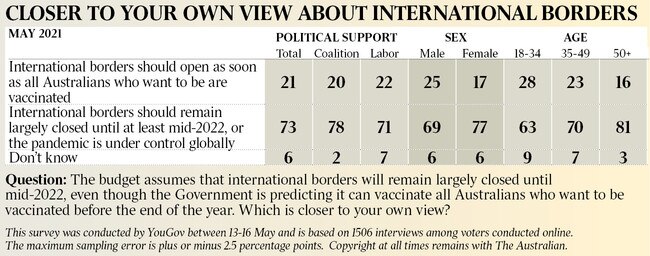
“Given the shared way our federation has responded to this crisis, it is very hard for politicians at any level now to move in any substantive fashion on border reopening without a clear lead from the public health thought leaders,” Mr Harris said.
“The reality is that for border reopening to be clearly on the public agenda, as it should be, it needs a signal from these leaders.”
He said discussion was needed with health authorities in countries that had “kept some level of human exchange going” or Australia would risk the task of introducing “ideas in future with only minimal public debate”.
But Mr Willox, speaking at the DFAT meeting last Thursday, appealed for the urgent introduction of new health mechanisms to facilitate overseas travel and a fast-tracked process to manage foreign arrivals who had received vaccines not yet approved in Australia, including the Sputnik, Sinovac and Johnson & Johnson jabs.
“Waiting for World Health Organisation determinations and then TGA approvals is guaranteed to be a tortured process,” he said.
Mr Willox said lockdowns were not “answer for either the short or long term” and warned foreign students and skilled labour could go to new markets.
Scott Morrison said on Sunday that the next step to reopening the border was enabling Australians who had been vaccinated to travel freely around the country — even where state restrictions were in place – before opening up travel to “safe countries” with more relaxed quarantine rules.
“For people to be able to do that on an abridged or different form of quarantine on their return, this is something we’ve been working on now for some months,” the Prime Minister said. “I still think there are many months ahead of us before we are able to achieve that.
“In countries where the virus is raging that would be I think a difficult thing because it would also hinder our task of getting people out of those red-zones.”
Mr Morrison also said he welcomed the work being done by state governments and universities to progress the return of international students, arguing the commonwealth would look at possible plans “very favourably.”
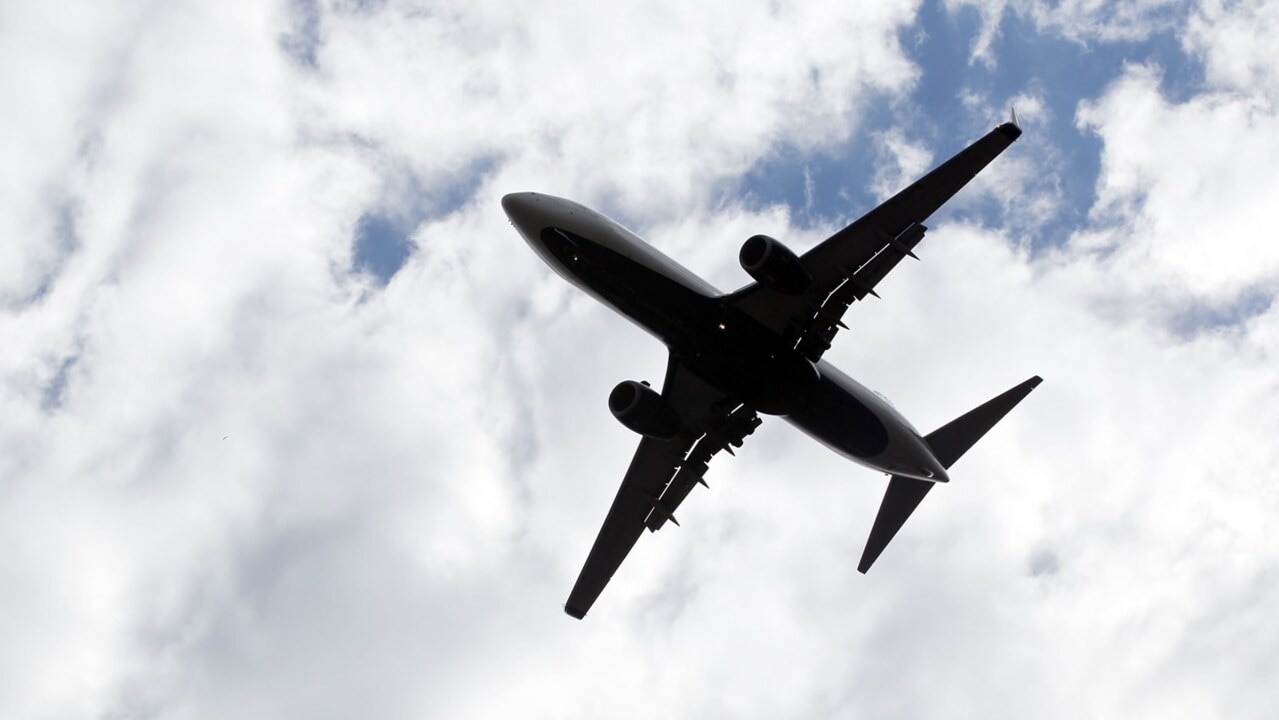
NSW has proposed a system allowing foreign students to enter the state and quarantine in Sydney using purpose-built housing.
Under the plan, students would be quarantined for 14 days as per usual in placements that would be counted separately from the state’s existing weekly travel cap.
James Merlino, Victoria’s Acting Premier, said on Sunday he agreed with the state’s chief health officer, Brett Sutton, that Australia would need to accept COVID-19 breakouts to open up the country again.
But only 21 per cent of voters surveyed by Newspoll supported reopening the borders even under a full vaccination scenario until the virus was under control globally. The view was almost universal across the political spectrum and age demographics with 78 per cent of Coalition voters and 71 per cent of Labor voters backing a closed border approach.
Women were more cautious, with 77 per cent backing a delay compared to 69 per cent of men.
Those aged over 50 were also more ardent with 81 per cent in favour compared to 16 per cent supporting an earlier reopening.
While younger people were slightly more conflicted, only 28 per cent of those aged between 18 and 34 backed a vaccination-led reopening with 63 per cent supporting an effective 12-month travel ban. Those aged between 35 and 49 were similarly disposed – 23 per cent backing a go-early approach and 70 per cent wanting the country to remain effectively closed for another year.
The results reflect widespread community support for Mr Morrison’s hard line approach — despite criticism from some quarters of the now lifted India travel ban — and the budget assumptions that international borders would remain effectively closed for international business and leisure travel until the middle of 2022.
A ginger group of Liberal MPs including Dave Sharma, Jason Falinski and Tim Wilson are pushing for a faster reopening of the international borders. The trio warned the border closure isolated Australia from the world and imposed significant economic costs.

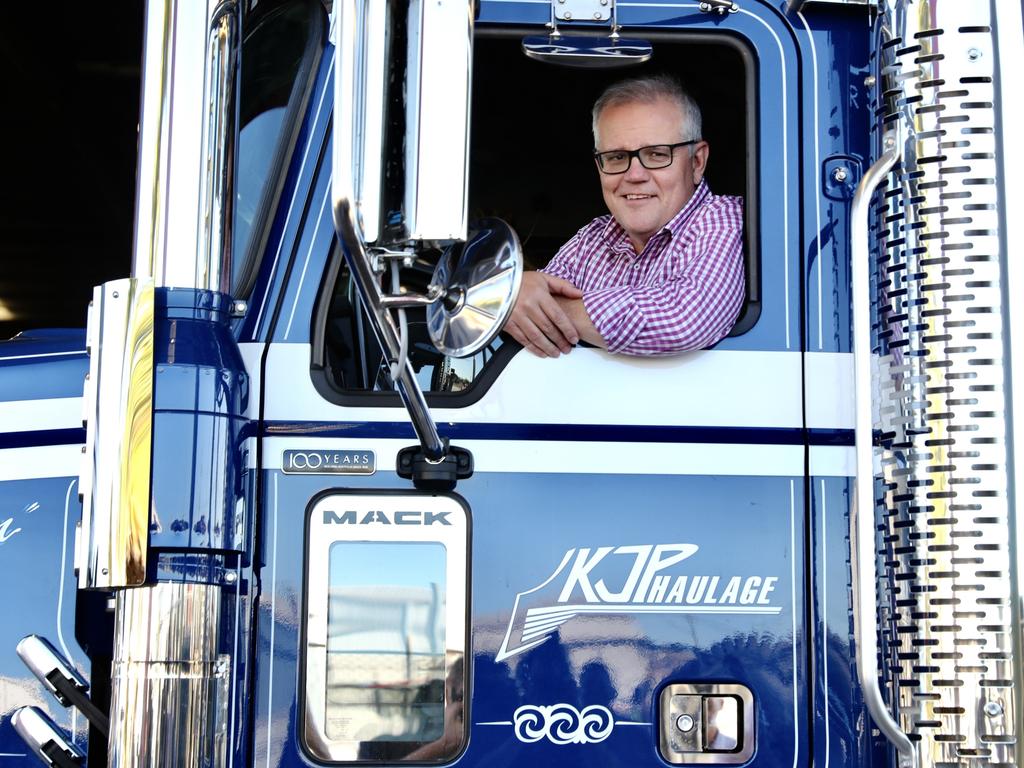

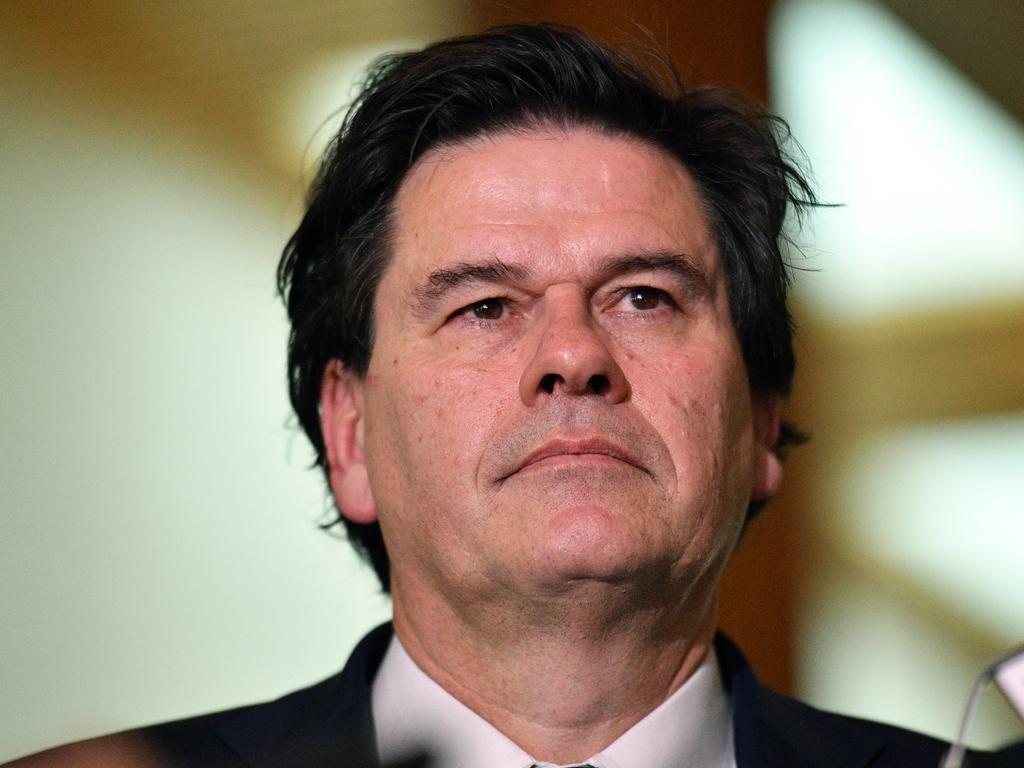
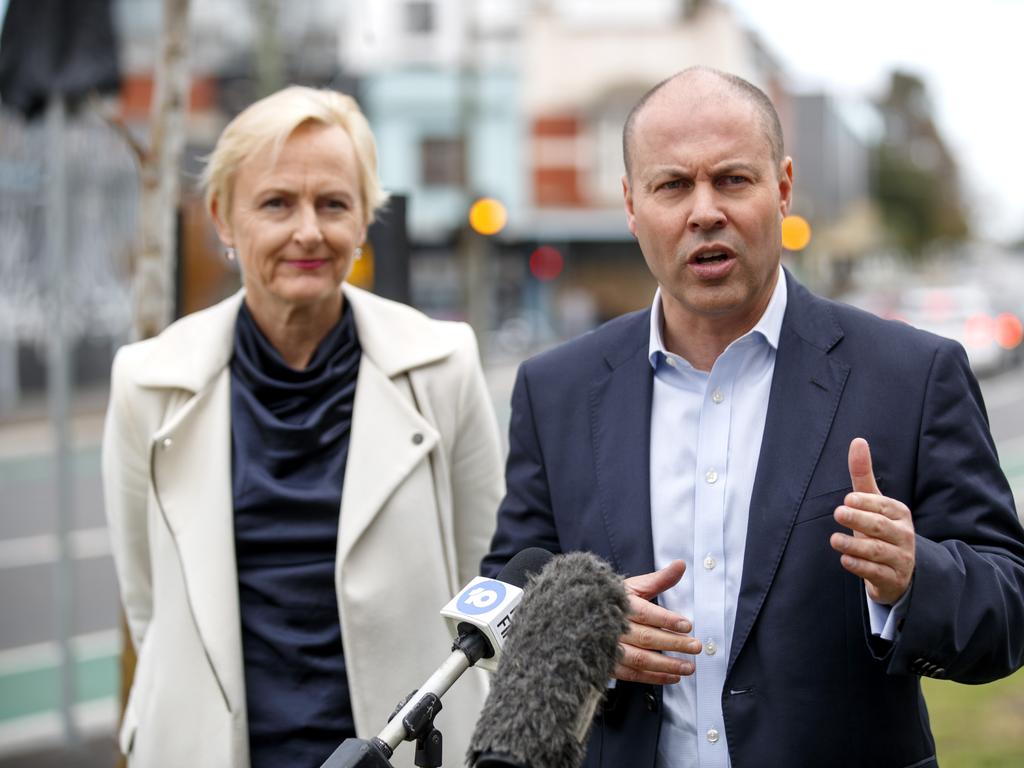


To join the conversation, please log in. Don't have an account? Register
Join the conversation, you are commenting as Logout